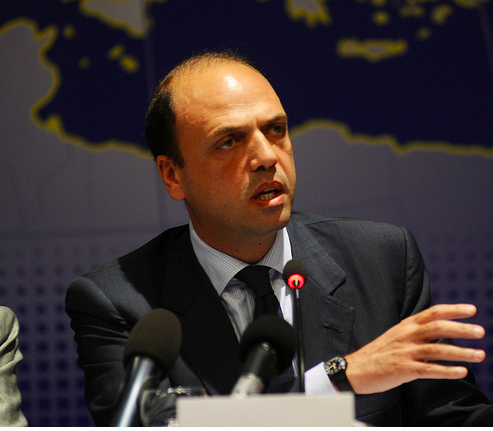Terrorism is the scourge of our times.
We live in a dangerous and uncertain epoch, when jihadists rake restaurants with gunfire, suicide bombers detonate explosive vests and terrorists plant bombs aboard airplanes.

Since the horrific events of September 11, 2001, when 19 Arabs commandeered three American commercial airliners and ruthlessly crashed them into the World Trade Center in Manhattan, the Pentagon in Washington, D.C. and an empty field in rural Pennsylvania, Islamic State has emerged as a potent force in the Middle East and Western democracies have been far more attentive to such dire threats.
But the news is not all black, and there is light at the end of the tunnel.
The ceaseless battle against terrorism continues in, among other countries, the United States, Germany and Italy.
Twitter, the San Francisco-based messaging service, recently announced that a further 235,000 accounts were terminated after their owners were found to be promoting terrorism. Since the middle of 2015, 360,000 such accounts have been cancelled.
Twitter, of course, is walking a fine line as it tries to balance the sanctity of free speech with the imperative of denying terrorists a platform.

Since its establishment, Islamic State has cynically exploited Twitter as an extremely useful recruiting tool. Thousands of impressionable young Muslims from around the world have flocked to its ranks thanks to Twitter’s user-friendly technology.
This was a situation that could not be tolerated any longer. One assumes that Twitter will continue to weed out account holders taking brazen advantage of its service.
Of late, Germany has come under attack from jihadists, some of whom slipped into the country last year. In a gesture of good will, Chancellor Angela Merkel allowed about one million Muslim migrants fleeing chaos in Syria, Iraq and Afghanistan to settle in Germany. Most of them are peaceful, hard-working people who want a better life for themselves and their children. But a hardened handful are Islamic radicals who’ve pledged allegiance to Islamic State and are almost certainly ready to strike Germany again.
With this potential threat in mind, Germany’s coalition government has announced its intention to phase in a broad range of measures to tighten security and combat terrorism.
Interior Minister Thomas de Maiziere told reporters last week that more federal police officers will be hired, that expressions of sympathy for terrorism will be a criminal offence and that dual citizens who join extremist groups will be stripped of their German citizenship.
These measures, though belated, are welcomed.
Germany’s exposure to Islamic terrorism, however, is hardly a new phenomenon.

Mohammed Haydar Zammar, one of the planners of 9/11, was a German citizen who lived in Hamburg. Arid Uka, a Kosovo Albanian who immigrated to Germany in 1991, killed two American airmen at Frankfurt Airport in 2011, in the deadliest Islamic terrorist attack on German soil.
These facts have faded into the woodwork, but German leaders are obviously mindful of the threat posed by Islamic extremism, which has yet to be eliminated.
It’s no secret that some imams, whether in Germany or elsewhere, have abused their pulpits. They’ve radicalized congregants in the hope of converting them into terrorists. It’s a pressing problem that must be addressed, sooner rather than later.

Much to its credit, Italy is taking action on this front. Earlier this month, Italian Interior Minister Angelino Alfano disclosed that two imams were subjected to expulsion orders, bringing to 44 the number of suspected extremists who’ve been expelled from Italy in 2016. Last year, 110 Islamic radicals were given the boot.
Terrorism and incitement to terrorism are serious issues that cannot be treated lightly or swept under the rug. Companies like Twitter are duty-bound to crack down on advocates of terrorism, while governments are obliged to protect their citizens from harm.
This is elementary.
